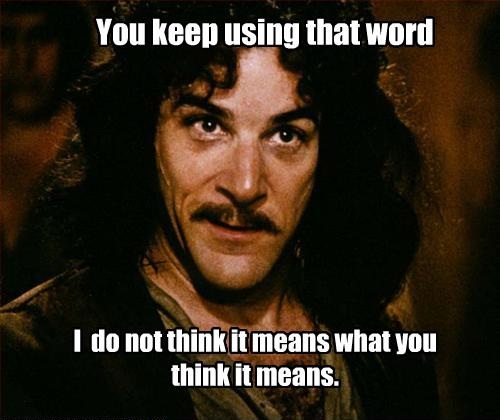A lot of people, either willfully or ignorantly, haven’t comprehended the fact that all laws are backed by the threat of force. I like to point this out whenever one of my statist friends advocates for a new law that seemingly carries minor consequences. Usually I’m rewarded for me efforts by being accused of making a hyperoblic statement or being ridiculous. But facts are facts and laws are violence:
On the opening day of law school, I always counsel my first-year students never to support a law they are not willing to kill to enforce. Usually they greet this advice with something between skepticism and puzzlement, until I remind them that the police go armed to enforce the will of the state, and if you resist, they might kill you.
I wish this caution were only theoretical. It isn’t. Whatever your view on the refusal of a New York City grand jury to indict the police officer whose chokehold apparently led to the death of Eric Garner, it’s useful to remember the crime that Garner is alleged to have committed: He was selling individual cigarettes, or loosies, in violation of New York law…..
The problem is actually broader. It’s not just cigarette tax laws that can lead to the death of those the police seek to arrest. It’s every law. Libertarians argue that we have far too many laws, and the Garner case offers evidence that they’re right. I often tell my students that there will never be a perfect technology of law enforcement, and therefore it is unavoidable that there will be situations where police err on the side of too much violence rather than too little. Better training won’t lead to perfection. But fewer laws would mean fewer opportunities for official violence to get out of hand.
If a person I’m debating is especially touchy they will usually reply with a variation of, “So you don’t support
Anarchism isn’t the opposition to all laws but the full comprehension of the fact that laws are backed by the threat of force. Therefore we put it on individuals to decide what they’re willing to enforce. Historically stateless societies had laws against initiations of force such as assault, murder, rape, theft, and other situations where one person was clearly harming another. These laws existed not as decrees written by men in marble buildings but by the actions of individuals.
Consider murder. Most individuals are will defend themselves if somebody tries to murder them and will go so far as to kill their attacker. The same goes for assault. Somebody being assaulted is typically willing to defend themselves to the point of escalating to deadly force is their attacker continues to escalate matters. Rape is another crime where victims are generally willing to escalate matters to deadly force if necessary. Theft, although seldom reaching such a drastic point, can result in somebody killing a thief, usually if the thief attempts to interfere when the rightful owner arrives to retrieve their property.
But very few people are willing to post a sign on a road with an arbitrarily selected limit and kill anybody who exceeds it. They may be willing to support a speed limit if somebody else is willing to enforce it but that is different than being willing to take the responsibility upon themselves.
The other factor in stateless law is whether members of a community will tolerate it. Let’s return to murder. If somebody was attacked and circumstances escalated to the point where the intended victim killed the aggressor would members of the community support it? Historically most communities were fine with that by the fact members didn’t see it as necessary to punish the would-be victim. The same could not usually be said for individuals who attempted to enforce victimless “crimes.” If you murdered somebody who exceeded your arbitrarily posted speed limit it is likely other members of the community would view you as a murdered and retaliate. In stateless societies each individual was a lawmaker and the community was the check and balance.
Laws are threats of force. The question is whether you’re willing to use that force to prevent a certain action. If you’re not then you have no business asking somebody else to do. If you are then you have no need to have others write it down and vote on it. That is the basis of anarchist law and that is why stateless societies tended to be far more peaceful than their statist neighbors and why the number of laws were very few.
